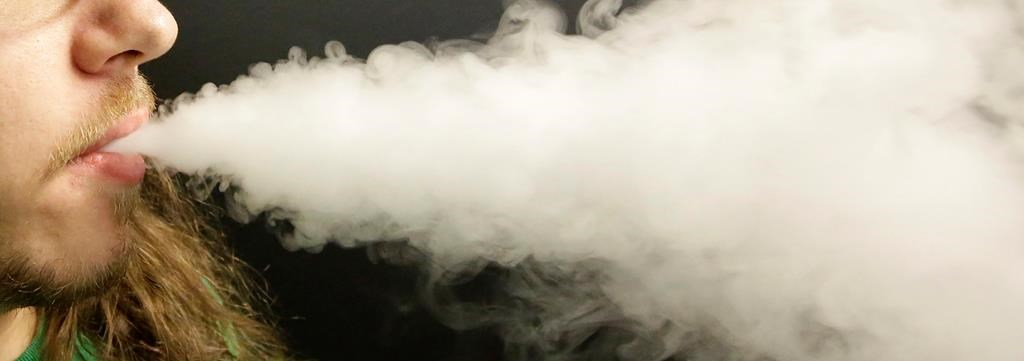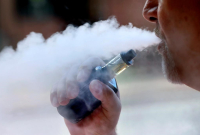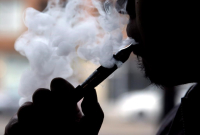Support strong Canadian climate journalism for 2025
A youth from London, Ont., has been diagnosed with a severe respiratory illness related to vaping, local health officials said Wednesday.
The Middlesex-London Health Unit had no further details about the case — believed to be the first confirmed in Canada — but said more information would be released at a 2 p.m. news conference.
Health Canada issued a warning recently urging people who vape to watch for symptoms such as a cough, shortness of breath, fatigue, diarrhea, vomiting and chest pain. It has also said that health-care professionals should ask patients about their use of e-cigarette products if they have respiratory symptoms.
Health officials in the United States have been investigating a mysterious surge of severe breathing illnesses linked to vaping marijuana in recent months. They have identified 380 confirmed and probable cases in 36 states and one territory, including at least six deaths.
U.S. researchers suspect the cause is vitamin E acetate, which is used as a thickener in vaping products, and known to trigger pneumonia when inhaled.
The report about the London, Ont., case came just hours after the province's health minister ordered all public hospitals to report vaping-related cases of severe pulmonary disease.
Christine Elliott said she has become increasingly worried about vaping.
"In light of the growing evidence, I have become increasingly concerned about the prevalence and possible health consequences of vaping, particularly as they affect our youth," she said in a statement before news of the London case broke. "At the same time, it has become abundantly clear that we do not have access to sufficient data and information to understand the potential scope of this issue."
Her spokeswoman Hayley Chazan said "this case just highlights the importance of collecting this sort of data from hospitals so that we can move forward to find evidence-based solutions."
Elliott said the data will be critical to government discussions with experts on the potential dangers of vaping and solutions to the problem.
Vaping was also recently added as a new topic in Ontario's health and physical education curriculum for elementary students. Grade 4 students learn about the risks of vaping in substance use and addictions lectures, while Grade 1 students learn vaping is part of a list of behaviours that can be harmful to a person's health.
Alberta has also started legally requiring provincial health-care professionals to report suspected cases under their public health act.
British Columbia's health ministry said last week that it was preparing a response to the issue, including education and awareness, as part of a strategy to reduce the number of youth vaping in the province.
Nova Scotia's chief medical officer of health has said he is sending informal email inquiries to respiratory specialists and intensive care units at the province's hospitals to look for similar cases as what's occurring in the U.S.
The six who died in the U.S. were all adults and some had pre-existing lung problems or other conditions that may have made them more susceptible. The Centers for Disease Control in the U.S. said it doesn’t know if the illness is new or just newly recognized.
—With files from Nicole Thompson and the Associated Press
This report by The Canadian Press was first published Sept. 18, 2019.





Comments